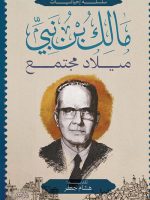The philosopher Al-Jabiri believes that the Arab moral mind was influenced by five legacies:
1.The pure Arab heritage
2.The pure Islamic heritage
3.The Persian heritage
4.The Greek heritage
5.The Sufi heritage
Muhammad Abed Al-Jabiri believes that the origin of ethics is religion, and that reason stands behind moral judgment, as it is the basis of ethics in Islam. The Arab moral mind was exposed to the influence of political employment and the development of the concept until it reached the stage of establishing or what the writer calls “the ethics of obedience”, which crystallized with the Umayyad state in a way that serves “the unity of society and the state, inspired by the Persian heritage in particular.” He also explained the reasons for the dominance of Khosrowian values and the Persian heritage, whether at the cultural level or at the level of the structure of the state and the entity of society, in contrast to ignoring the Greek heritage, as in the texts of the philosophers Plato and Aristotle, and the medical human tendency in ethics, one of the most important pioneers of which was Ibn Al-Haytham, and also the limited influence of the philosophical tendency represented by Ibn Rushd and Ibn Bajjah, despite their cognitive importance and their criticism of the ethics of obedience, and the fog of the Sufi tendency prevailed, which tried to escape from positive resistance to negative resistance. The writer elaborated on drawing the manifestations of the moral crisis at various levels in Islamic societies resulting from this influence, where the system of the sheikh and the disciple dominated, and its owners completed their moral path, as they moved from the annihilation of ethics to the ethics of annihilation and the dropping of legal obligations.













Be the first to review “Mr. President”